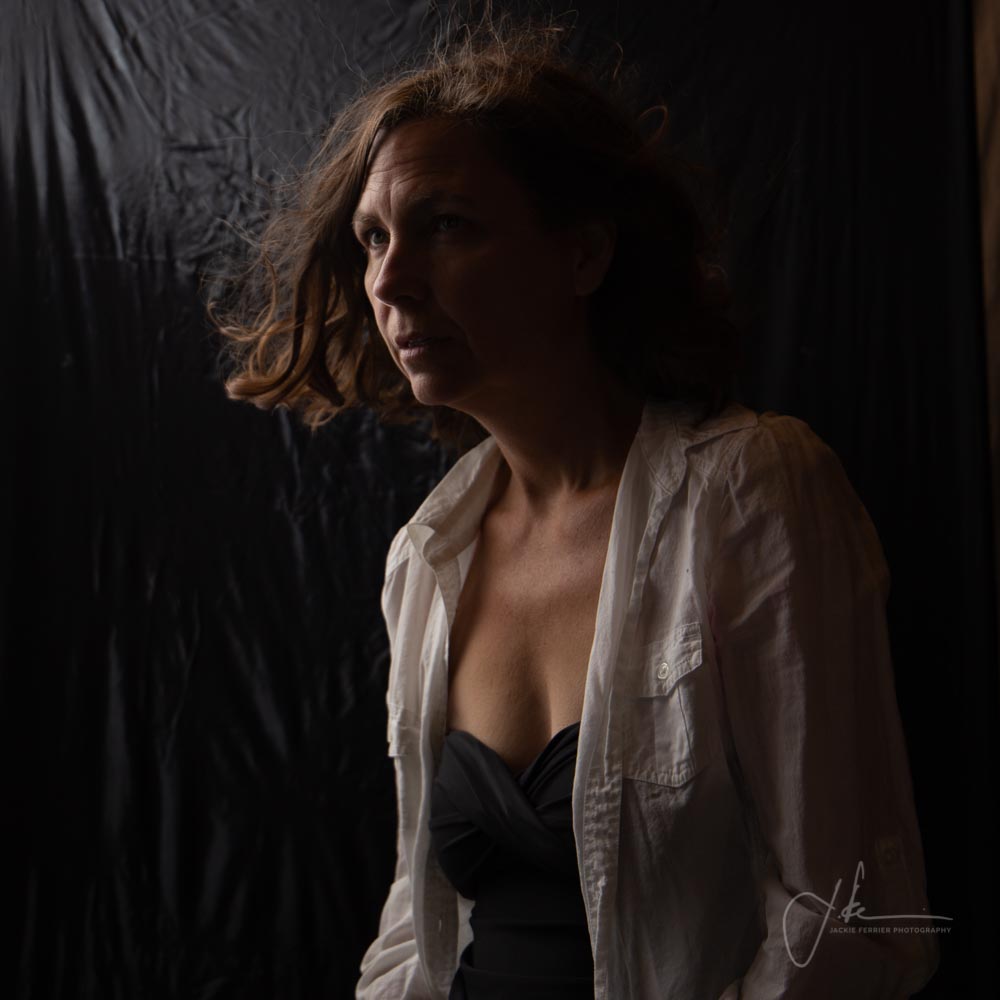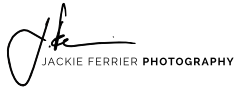There is both a practical reason and a philosophical reason I did the self-portraits over the summer. The most obvious and most practical reason is that the means to do so are immediately available to me. You want to create? Create. Eliminate the barriers.

The other reason and for me, much scarier reason, is that I have come to a point in my life where I can not grow if I continue to hide.
I don’t just mean show pictures of myself, although in some ways it’s all one and the same. I mean who I am, my vision, my voice.
There are all sorts of reasons why we hide. It’s often, but not always out of fear. Sometimes we hide because we believe it’s unseemly to be “full of ourselves”. Which is an inteesting phrase. Should we not be full of ourselves? Who should we be full of?
Sometimes we just can’t tell the difference between our own voices and those that get planted in our heads. Sometimes we don’t know where to start. Being a multipotentialite I know this one well. How can I focus on one thing when it means burning bridges in all the other disciplines that are making me money.
Sometimes we stagnate or get stuck because we don’t know what our gifts are and so we don’t know what we could even offer the world. I highly doubt the world needs another selfie.
But if we look deeper, go deeper, it’s often more than that.
Let’s visit fear and it’s sibling anxiety.
Fear is a cliche. Fear is something the self-help gurus like to talk about all the time and it’s freaking annoying because it doesn’t really help when you are on the outside of it. What are you afraid of? Death. But not at the moment. At the moment I am not afraid of anything. Am I still afraid of death? Well, I assume so. To talk about fear is an intellectual exercise. As if it’s something that is ever-present. It’s not.
So many of us have unrealized dreams or unspoken feelings. We procrastinate, avoid just put up with that job or that on-the-fence relationship. Quite often we simply are blind to how we can make room in our lives for our calling because our fear (which we would rather not dwell on) keeps us stuck.
More accurately it is the fear machine, which presumably including coping with it, is blinding.
We have to remember that fear is designed to protect us, whether or not to do so seems reasonable. If your own thoughts activate that fear you just are not going to go there. If you are someone who tries to stay conscious and aware, you might even discover that there will be a flicker of something and then before you consciousness has time to catch up it’s gone like a dream, you can’t even remember what it is. Slight discomfort and then a shift. Wow, dodged that bullet, let’s go make ourselves feel better, social media anyone?
Fear itself is freaking scary, never mind the thing that caused it. That’s why it can be difficult to access. We don’t want to access it. We are hardwired to avoid it. We want someone to tell us that we are afraid of success and so why we haven’t followed our dreams because it seems vague and slightly, I don’t know, sweet and easy to solve. But what we probably really want is some kind of clarity of thought and emotion and know what direction we’re headed, the power to be able to act with certainty. The way it seems like everyone else does.
I can only speak for myself here. It took the right combinations of things to happen for me to get to a point where I could get to the inside of the thing, the thing. Our things are different for all of us. The thing that was both completely obvious, but deeply disguised or maybe not cohesive, but just a bunchof parts. The path was not straight. And I expect incomplete. I was just going to make a terribly witty comment about how my issue of being stuck was certainly not about the fear of success when I thought to myself: Maybe it is. I just don’t know it yet. Because that is how this stuff goes. But there is no ah-ha moment for me, and this is what you are looking for.
If I were to summarize it, I’d say the evolution toward becoming unstuck consisted of four elements: bad feelings; writing; the willingness to get to and get into painful personal truths; and a certain amount of self-compassion. It sort of went in that order as well.
The bad feelings generated the need to cope with them somehow, and I didn’t really have my usual outlets for talking so I turned to writing. And that writing was probably mostly ranting and complaining initially.
I’ve asked myself whether bad feelings are necessary for the process. I’m not sure. It might be in order to give you the motivation to face your fears. But maybe only if you are stuck. Because when everything is going good, why upset the apple cart so the speak?
It’s easy to fail in self-reflection. We are driven by our habits. Humans like to blame and blame often. This is how we think we make sense of things and keep our egos protected from ego-threat at the same time. And we really like to blame others. And when we blame ourselves, it’s still this weird kind of side-stepping to our own responsibility. We are blind to things because we simply don’t want to see them. But we don’t want to see them because we often are in denial. What are we in denial for?
Oh fear, yes, of course, there it is. So let’s just stay in the defensiveness phase then. Let’s explain things away with things that sound good, make us look good, tinged with a touch of honesty so people will beleive it. We’ll believe it. Less scary. How about let’s be angry instead of looking at our own part in things. Anger kind of has a reinforcing quality to it, says science. We don’t think that feeling anger is enjoyable but it does make us feel better. It makes us feel like we are not helpless while keeping us helpless. Anger can be tricky.
It’s funny how we can defend ourselves, understand our own points of view to the exclusion of everyone else’s, and yet simultaneously lack the compassion required to gently explore our own weaknesses. On the other hand, if we had more of that compassion, we’d probably not be judging everyone else so harshly either. But let’s set that aside for a moment, evolution takes time and is not possible for everyone, or possible in all ways. We are, after all, human.
But we need that self-compassion to have the bravery to truly see the weaknesses we are hiding from ourselves.
Remember that the next time you wish for a person to see just how much of a jerk they’re being: you might actually be wishing they could see themselves with compassion. (Of course, if you are the more evolved sort – good for you, I support that. For the rest of you vengeance-seeking monsters, well, it’s a bitter pill. I know.)
If you are struggling with fear, or even anger, write your thoughts and feelings. You don’t need to write well, and keep it private. It needs to be a place of freedom for your thoughts and feelings. I have even had some success in giving voice to the moneky brain that is inside of us – that primitive, non-sense making id. Give it at a voice. And give it a gentle compassionate listener.
The real benefit of writing is that it seems to occupy your consciousness just enough to stop its meddling and allow the subconscious to percolate in the background and speak through it. Handwriting is particularly good because it takes more effort and time to write thus occupying your consciousness further, and it’s you shaping the very letters themselves. And soemtimes it acts as a kind of ercording, once recorded we can move to the next step in our thinking, we don’t have to keep hanging on to something in case we forget it. It allows for a more complex view of things.
But the aim is to deeply reflect; look at yourself and your choices. There are always more options than we initally think are or were available to us. What were they? And what is the real hidden reason you couldn’t take them at the time? Challenge your assumptions. If the story you have been telling yourself was completely true, you wouldn’t be stuck. Resist intellectualizing. That’s another defense. Stay with the emotions it evokes. I have a saying – emotions are not the truth. But they are the path to the truth. Your truth.
Fear never stops being scary, and we are scared of it from all angles. We are afraid of what it looks like, what it means to us and about us, we are afraid it will overwhelm us, that we will never stop seeing it, that we will have to live in it, once in never out, we will somehow be cast out by it and inevitably annihilated by it. It’s no simple thing, and again, we are hardwired to avoid it.
But through writing we can nudge up against the fear. Pick away at it, take it in manageable bites. And we must because the fear is masking the thing. The thing stays abstract as long as you ignore it. In doing so it robs you of your power through fear.
Self-compassion, empathy, and learning how to tolerate discomfort are the keys to having the bravery to open the door to the monster on the other side, they are the essential armor that gives us strength, and even protects us from harm, it’s the guide that allows us to tame this monster, the parent in us that allows us to nurture it. Then see how the monster loses its hold over you. When you become more of you you are meant to be, you will become unstuck.
I’d like to say the process was linear but it’s not. It’s messy. It gets half done, it leads you off the path, you go backward and things change. Our various life traumas actually happened and the brain doesn’t forget what it’s learned through fear. Fear never stops being scary. We revert back to habits in times of stress and so on. We are creatures of habit.
But there is a part of yourself that longs to be free.
And today this is what I am thinking about. Habits. The things that get you stuck. And the ways to get unstuck.

